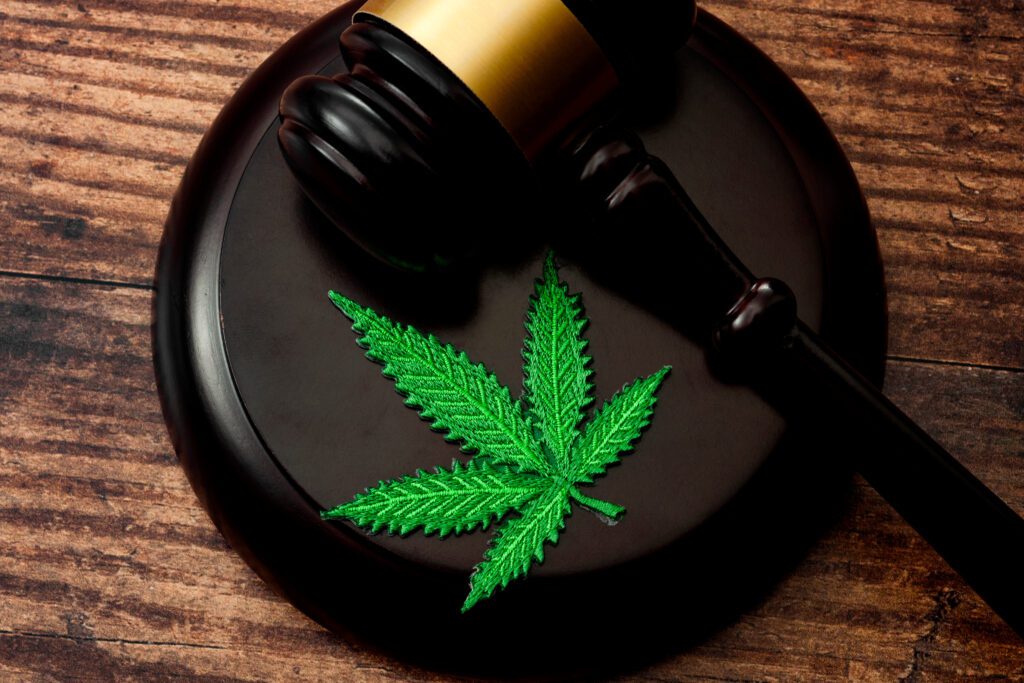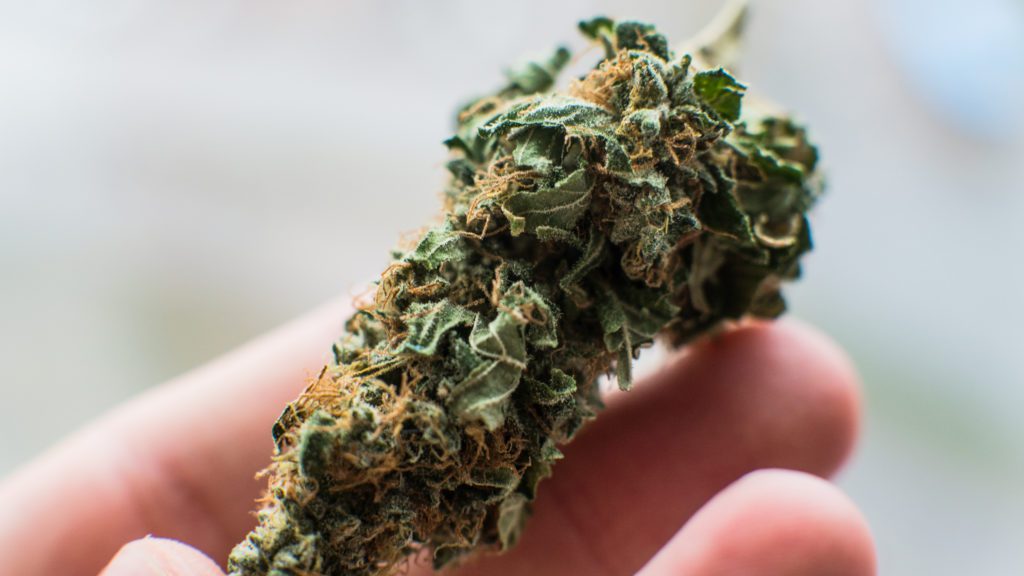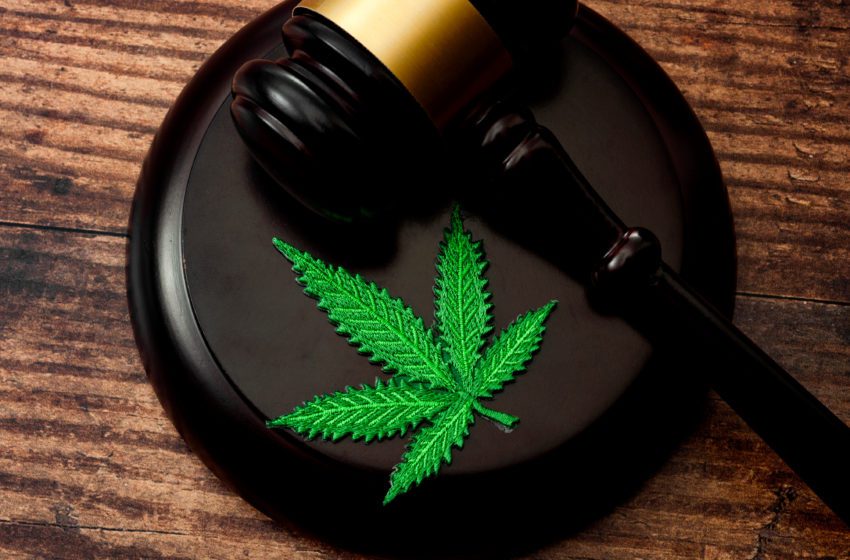
Issues to be aware of before marketing THCa hemp flower
By Rod Kight
As a cannabis lawyer, I represent lots of companies in the U.S. hemp industry, and I am routinely asked legal questions about new and novel products. I am currently receiving lots of calls about “THCa flower.” In this article, I will discuss THCa flower and several legal and practical issues regarding it.
What is THCa flower?
THCa flower refers to cannabis buds marketed as hemp. These buds are intended for smoking or vaping. They contain high concentrations of tetrahydrocannabinolic acid (THCa) and low concentrations of delta-9 THC (D9). Specifically, their D9 levels do not exceed 0.3 percent by dry weight, which is the legal limit for hemp under the 2018 Farm Bill. For example, I recently viewed a certificate of analysis of THCa flower that showed 25 percent THCa and 0.18 percent D9. This is remarkable. Despite the fact that this cannabis flower is federally lawful hemp, smoking it will get you very high. In fact, cannabis flowers with high THCa/low D9 ratios are exactly what is being sold as marijuana in states that have legalized it. Although some marijuana strains contain D9 in levels that exceed 0.3 percent, many strains do not. This means that they are technically “hemp” under federal law. In other words, THCa hemp flower is no different from much of the marijuana flower currently sold in medical and recreational marijuana dispensaries in states with regulated marijuana markets.

Is THCa flower legal?
The short answer is “yes,” at least under federal law and the laws of some states.The idea that there are legal hemp buds that are no different from illegal marijuana buds seems counterintuitive, but proving that this is true involves a very straightforward analysis. The 2018 Farm Bill distinguishes legal hemp from illegal marijuana solely by reference to its D9 levels. Specifically, hemp is cannabis with no more than 0.3 percent D9 by dry weight. A hemp bud with THCa levels of 20 percent and D9 levels of 0.15 percent falls squarely within the 2018 Farm Bill’s definition of “hemp” and is legal under federal law.
In fact, the Drug Enforcement Administration (DEA) has specifically stated on multiple occasions that cannabis material meeting this definition is lawful. In a Jan. 6, 2022, letter, the DEA stated: “Material that is derived or extracted from the cannabis plant, such as tissue culture and any other genetic material that has a delta-9 tetrahydrocannabinol concentration of no more than 0.3 percent on a dry weight basis, meets the legal definition of ‘hemp’ and is thus not controlled under the CSA.” This was not the first time the DEA confirmed that the sole factor distinguishing lawful hemp from unlawful marijuana is its D9 concentration. In addition to confirming this standard in both a letter to the Alabama Board of Pharmacy and a public statement to the Florida Department of Agriculture and Consumer Services, the DEA’s Interim Final Rule regarding hemp states that marijuana is limited “to only include cannabis or cannabis-derived material that contain more than 0.3 percent delta-9-tetrahydrocannabinol (also known as D9-THC) on a dry weight basis.”
In summary, harvested cannabis flower with D9 concentrations not exceeding 0.3 percent meets the legal definition of “hemp” and is not controlled under federal law, regardless of its THCa levels. It is important to note that this only applies to harvested cannabis material. The U.S. Department of Agriculture (USDA) controls hemp production, and its regulations require a test that accounts for both THCa and D9 before the hemp can be harvested, commonly referred to as a “total THC” test.
What are the major legal issues with THCa flower?
Although THCa hemp flower is lawful under federal law, there are some important issues and considerations to be aware of. The rest of this article will discuss these issues.
Is it possible to grow compliant THCa flower?
One issue is whether THCa flower, at least with the high THCa concentrations discussed at the beginning of this article, can come from hemp grown in compliance with the USDA’s pre-harvest testing requirements. Through my research and discussions with clients, I have been made to understand that it is difficult, though possible, to obtain THCa hemp flower from hemp that passed the USDA’s pre-harvest tests. Additionally, it is important to note that the DEA considers all cannabis material with D9 levels not exceeding 0.3 percent by dry weight to be lawful “hemp” regardless of whether or not it was grown by a licensed hemp producer and/or if it passed a USDA total THC pre-harvest test. This conflict between the USDA and the DEA is an unsettled area of law, though it is clear that the USDA’s regulation of hemp terminates upon harvest.
What about state laws?
Another issue is whether THCa flower is lawful under state law. The answer depends on the state in question. It is clear that you can lawfully transport THCa flower through a state regardless of its hemp laws. This is because the 2018 Farm Bill states: “[N]o state or Indian Tribe shall prohibit the transportation or shipment of hemp or hemp products produced in accordance with subtitle G of the Agricultural Marketing Act of 1946 (as added by section 10113) through the state or the territory of the Indian Tribe as applicable.” But individual states may restrict or even downright prohibit it. Although THCa flower is lawful in many states, it is prohibited in others. For instance, some states restrict all hemp that is intended for smoking, which includes THCa flower. Some states allow smokable hemp but prohibit THCa flower based on their requirement that hemp pass both a pre-harvest and post-harvest “total THC” test. Additionally, the legal status of THCa flower in some states can be tricky to determine due to the way that their hemp laws and regulations are written.
In summary, the laws and regulations of a given state determine the extent to which THCa flower is lawful. State laws vary, and the legal status of THCa flower can sometimes be difficult to determine. This leads to a final issue: confusion and misunderstanding of hemp laws.
What if THCa is lawful in my state but law enforcement disagrees?
A final issue to consider is confusion by law enforcement and state regulators about the legal status of THCa flower. Many people in the hemp industry contend that hemp flower is only lawful if it passes a “total THC” test, which accounts for both THCa and D9. Although this is correct for hemp that has not been harvested, it is wrong under federal law and the laws of many states for harvested cannabis material. Given that this issue is confusing even to experienced hemp industry participants, you can imagine its misunderstanding is compounded by law enforcement and even regulators, many of whom do not know or care much about (or for) hemp. In practice, this means that someone lawfully selling THCa flower may experience problems, including prosecution, from law enforcement.
Conclusion
THCa flower is poised to be the “next big thing” in the hemp industry. Based on the feedback I am receiving, I believe that it will be very popular in much of the country. As discussed above, THCa flower is lawful under federal law and the laws of some states. However, before deciding to participate in the emerging THCa flower market, it is very important to understand the issues and risks involved.
Important Note: This article is not intended to be legal advice and should not be used as such. The matters discussed are novel and involve complicated and unsettled legal issues. Before making any decisions regarding THCa, you should first consult with an experienced attorney.


